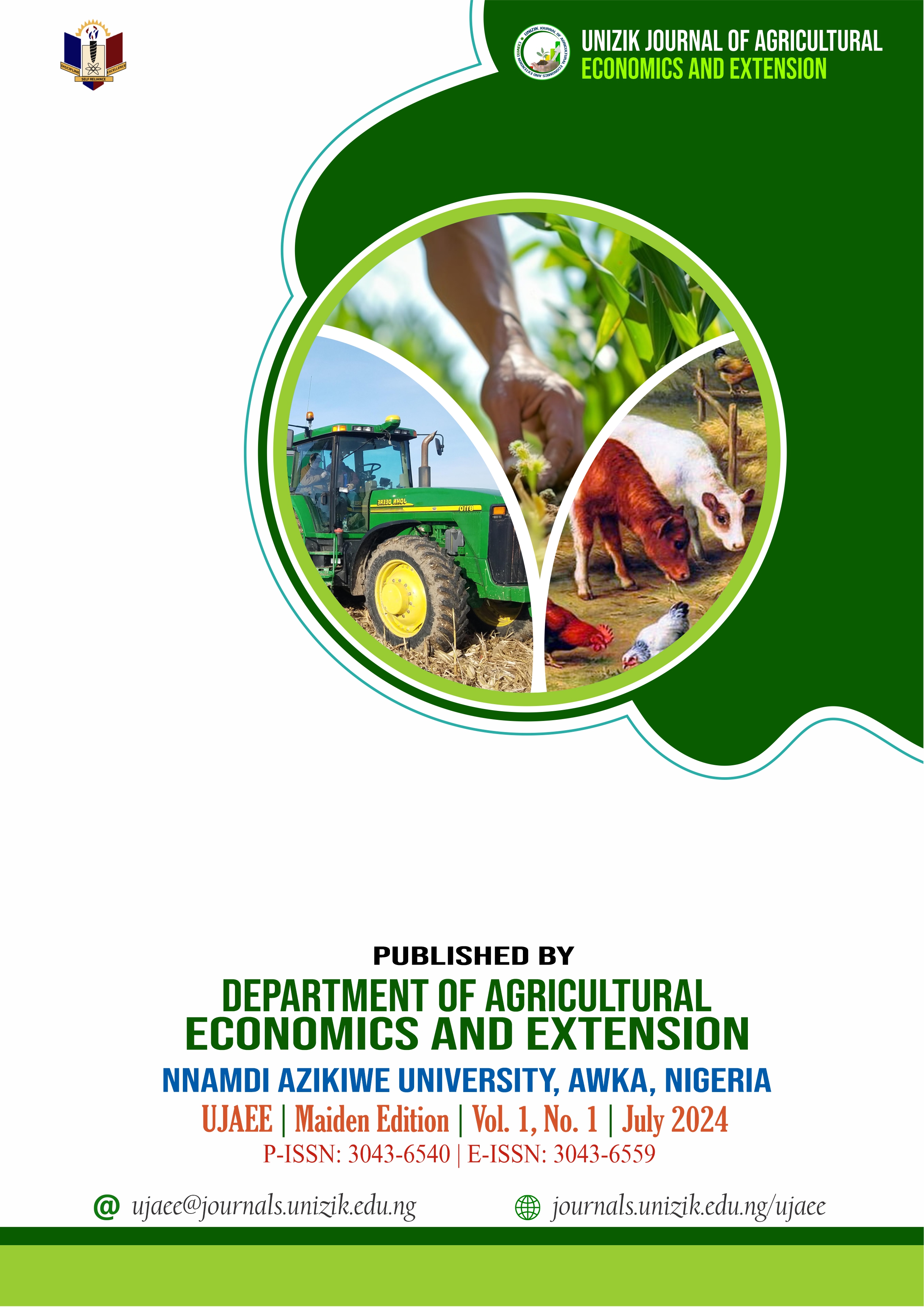Econometric Analysis of Rice Yield Determinants
Keywords:
Time series, Nigeria, Productivity, Smallholder farmersAbstract
The limited capacity of domestic rice production to match demand raises number of pertinent questions. What socio-economic factors determine the variation in the yield level among smallholder rice farmers? This study attempts to determine the effect of some socio-economic variables namely: farm size, capital, technology, interest rate and government incentives to increase rice yield among farmers. Johansen cointegration, fully modified ordinary least squares error correction model as well as Granger causality test based on Toda-Yamamoto procedure were employed to determine the relationship and effect of the socio-economic variables on rice yield and causality among the variables. The findings reveal that the five variables analyzed were integrated of order one and hence co-integrated. The results show that government incentives, capital, farm size and technology have positive impact on rice yield. The Granger causality test results revealed that rice yield is Granger caused by farm size, capital, technology, interest rate and government incentives. The study concludes with policy recommendations to improve rice productivity yield among smallholder farmers in Nigeria by stakeholders increasing the area of land cultivated and improving farmers’ access to capital at low and single digit interest rate.
Downloads
Published
Issue
Section
License
Copyright (c) 2024 UNIZIK Journal of Agricultural Economics and Extension

This work is licensed under a Creative Commons Attribution-NonCommercial-NoDerivatives 4.0 International License.




